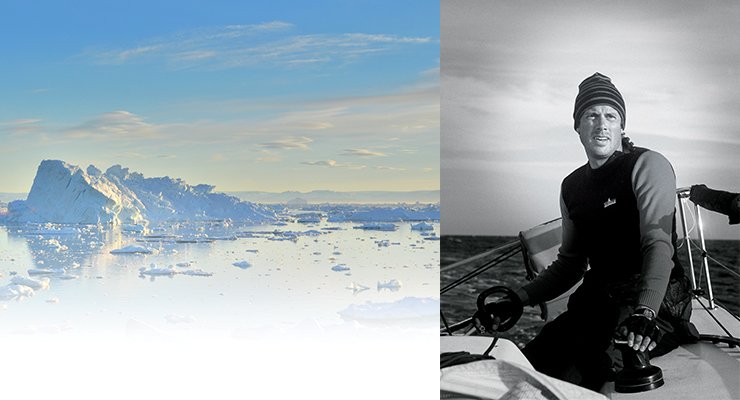Polar Sea — sailing without polluting

Is pollution-free travel a utopia? Christophe Brière, a UTC graduate and Sophie Galvagnon have decided to take up this challenge. Their solution: to produce an ultra-efficient sailboat equipped with measuring equipment, to combine tourism and scientific research. In 2025, they will head for the far North!
“There is always a frustration among passengers regarding their carbon footprint, and more and more people are aware of the fact that they can travel less but better. These are the words of Christophe Brière, who graduated from UTC, majoring in mechanical engineering in 2010 and who has just created the startup Polar Sea with Sophie Galvagnon. The ambition of this startup is to offer low-carbon tourist and scientific cruises in the Arctic Circle by 2025.
Although the project really started last year, the idea of associating boats and sustainable development is not new for Christophe: “I have been sailing ever since I was a child, and I went to engineering school to work in the nautical and sailing sector. Failing to be good at racing boats, I chose to be good at building boats!” At UTC, he chose to follow CCs in entrepreneurship and project management. “I had a project, called ‘Boat’A Green’, which consisted of developing an eco-designed pleasure boat,” he explains. I therefore chose the relevant CCs, which helped me to structure myself, because they offer a “box of knowledge” that I can use to help me develop my project. But in entrepreneurship, you have to find not only the right project, but also the right timing and the right team.
And for Christophe, the timing was not yet right for creating a company: “I started working in ocean racing, as a mechanical and composite engineer within the GROUPAMA sailing team. I did my end-of-study internship there, and I was hired directly afterwards to work on the construction of the carbon fibre boat. For a young engineer from UTC, it was a childhood dream! It was also very responsible, because the parts we were designing were going to go around the world, and if they were to break, it would compromise the whole race.
After this first experience, Christophe decided to change his life and did a VIE (voluntary programme) at the French Polar Institute, spending a year in Svalbard. I fell in love with the polar regions,” he says. I changed direction after this VIE, but I continued to go on cruises as a polar guide. It was on one of these cruises that I met Sophie in 2018. At the time an employee of Total, Christophe began working with Sophie on their startup project: “We started it as a side-project, evenings and weekends, then I moved to 80% for a year, until we made the concept viable and had enough positive signs to launch ourselves full-time, which has been the case since May 2022.”
The first objective of the two partners is to have a boat built to meet their very specific requirements. Our boat will be a small liner 70 metres water-line, with sail propulsion, for 36 passengers and about 20 crew members,” explains Christophe. The sails will probably be rigid (similar to an aeroplane wing set vertically), 5 for the size of our boat, and covered with solar panels. This is because when we cruise in the Arctic Circle, it will be daylight all the time, so the solar panels will be very efficient.
Construction of the first boat is expected to begin in the summer of 2023, with the first cruise two years later, departing from a location that could be reached by a low-carbon means. Limiting carbon emissions as much as possible is indeed Christophe and Sophie’s main objective. My first piece of green advice is to stay in France,” says Christophe. But we know that people will always continue to travel, so we might as well offer them services that will allow them to travel better. We would have 80 to 90% less impact than a traditional cruise. After that, we must be honest, a cruise will always have an impact, so the aim is to be transparent about what we manage to do in terms of reducing our carbon footprint.
To further limit the environmental impact of their cruises, Christophe and Sophie had the idea of coupling them with scientific campaigns: “The acceptability of this type of cruise can only be achieved if you have a purpose other than tourism. Part of the ticket price will therefore be used to finance scientific missions on board the boat. The aim is to bring science with us, with 4 places reserved for scientists, but also with automated scientific instrumentation, to take a considerable number of measurements in open source. It is a good idea that requires a lot of specific arrangements in the boat: plankton nets, winches, space for measuring equipment, a dry lab, a freezer for the samples…
It’s a large-scale job that requires a lot of personal sacrifice, as Christophe confirms: “My personal life is taking a big bang, more than I imagined. But it’s really exciting and I still have time to sail, fortunately! We wish him good luck!




